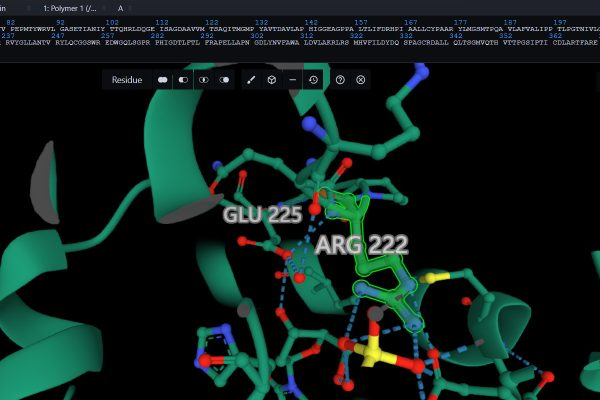In the ever-evolving landscape of life sciences, understanding the intricate relationships between protein structures and their functions is essential for developing effective biotherapeutics. We are excited to highlight how NeoTrident’s MaXFlow platform utilizes structure-based protein engineering and deep learning to enhance antibody affinity maturation, showcasing the numerous advantages of molecular dynamics simulation in this process.
Enhancing Therapeutics through Structure-Based Protein Engineering
One of the significant benefits of using molecular dynamics simulation is its capacity to aid in structure-based protein engineering. By accurately modeling the three-dimensional (3D) structures of proteins and antibodies, MaXFlow allows us to design and optimize therapeutics that possess enhanced binding affinity, specificity, and stability. This structural information drives our ability to create more effective biotherapeutics that can meet the specific needs of patients. The advantages of molecular dynamics simulation extend beyond mere visualization; they empower us to refine our designs based on the dynamic behavior of proteins, significantly improving our chances of success in therapeutic development.
Deep Learning Optimization for Safer Antibodies
Another transformative aspect of MaXFlow is its integration of deep learning algorithms for antibody affinity maturation. Through iterative optimization, we can enhance antibody binding while minimizing off-target effects. This approach is crucial for developing safer and more targeted treatments, as it enables us to pinpoint the most effective modifications systematically. The advantages of molecular dynamics simulation play a pivotal role in this process, providing a robust framework for understanding how subtle changes in amino acid sequences can impact the overall effectiveness of antibodies. By leveraging this technology, we can push the boundaries of therapeutic potential and usher in a new era of precision medicine.
Streamlining Workflows with Advanced Simulations
The seamless integration of Computer-Aided Drug Design (CADD) and Artificial Intelligence for Drug Discovery (AIDD) within MaXFlow streamlines our workflows, enabling rapid iteration and testing. The advantages of molecular dynamics simulation facilitate this acceleration by allowing us to conduct advanced free energy perturbation simulations without being bogged down by traditional methodologies. With improved data management and visualization capabilities, we can make informed decisions more quickly, ultimately driving the drug discovery process forward with greater efficiency.
In conclusion, NeoTrident’s MaXFlow platform significantly enhances our approach to structure-based protein engineering and antibody affinity maturation. By capitalizing on the advantages of molecular dynamics simulation, we can design more effective therapeutics, implement deep learning for precision optimization, and streamline our workflows in drug discovery. We highly recommend the adoption of MaXFlow for any organization seeking to capitalize on cutting-edge technologies in the life sciences field.
READ ALSO:
https://www.neotridentglobal.com/molecular-dynamics-simulation-software-for-windows/
https://www.neotridentglobal.com/yichang-hec/
https://www.neotridentglobal.com/sequencing-primer-design-software/
https://www.neotridentglobal.com/molecular-dynamic-simulation/
https://www.neotridentglobal.com/bocimed/
https://www.neotridentglobal.com/molecular-dynamics-simulation-of-protein-ligand-complex/



